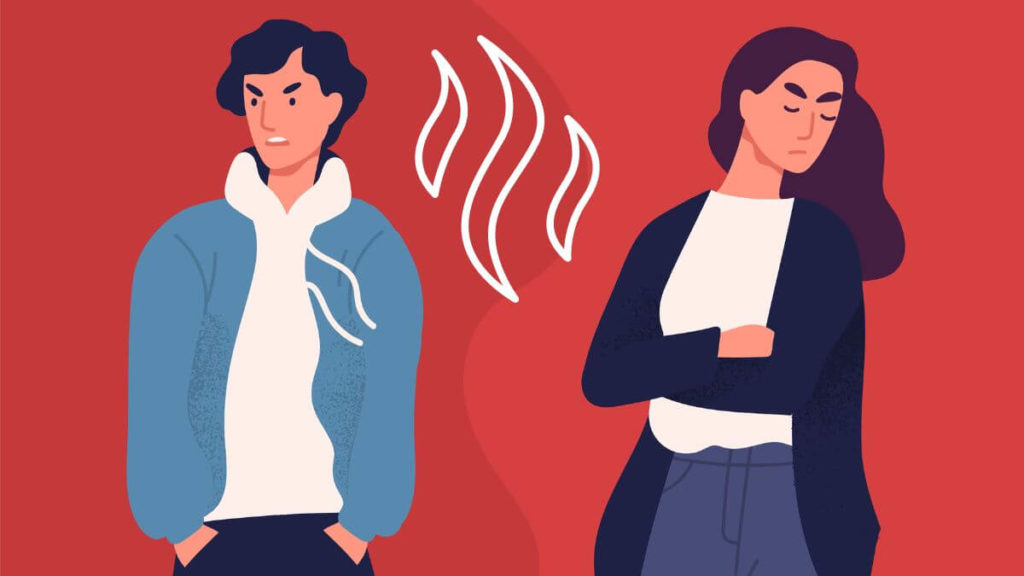Olivia Boyd is our teenage guest writer who is very passionate about supporting the pro-life movement and ending human trafficking. Upon completion of her High School education, she intends to study law and psychology. She has an interest in human rights and social psychology, and is an active member of the PragerForce group for students and young professionals. Olivia will be contributing articles to Family First this year as part of her Duke of Edinburgh award.
Please read Olivia’s article on offensive or uncomfortable forms of speech…
The Problem with Being Easily Offended
Should potentially offensive or uncomfortable forms of speech be limited or banned in a bid to help people feel ‘safe’? It’s a hotly debated topic at present, and for good reason as freedom of expression is seen by many as one of the pillars of our democracy. As social media becomes more censored and the government considers passing hate speech laws, it is evident just how vitally important it is to have robust public debate on this topic.
On the surface, it may sound appealing to be sheltered from confronting or potentially offensive ideas. According to Greg Lukianoff, the president of the Foundation for Individual Rights in Education, ““Safety” has been watered down to essentially mean the “right to always feel comfortable.”” [1] When someone else is making a judgement call on what we can say, we have to ask the question exactly who will get to decide what is offensive? And does the quest for safety prevent the robust and free debate that our democracy needs to function effectively?
In recent years, social media has opened up the debate more than any other vehicle of speech and public opinion. A social media tool has been implemented where supposed independent ‘fact checkers’ can effectively censor certain ideas or people from social media platforms. These platforms also have the ability to remove people who express views contrary to their ‘guidelines’. From shadow-banning to content warnings, it is becoming increasingly challenging to share certain views on these social media platforms. Of the many concerns raised, people are troubled that shutting down certain ideas will affect things such as election outcomes, public discourse on important issues, and the free exchange of ideas and views. So which views are more likely to be limited?
An opinion piece from 2017 expressed the view that conservative voices are being silenced, or as the author puts it “What we are witnessing, I believe, is the gradual squeezing out of conservative voices as that monoculture steadily extends its reach.” The article shares an example of the bias that exists towards conservative groups. Auckland University students ‘disaffiliated’ a student pro-life group, meaning the group ‘ProLife Auckland’ were denied access to funding or resources from the Auckland University Students’ Association. A member of Auckland Students for Choice labelled ProLife Auckland as “an embarrassment”, and the group were also told they were “propagating harmful misinformation”. The author of the article notes that this silencing of conservative voices was inevitable, “given that universities throughout the western world have been ideologically captured and no longer bother to maintain the pretence that they promote freedom of speech and robust intellectual debate.” [2]
It is becoming increasingly clear that conservatives or right-leaning voices are more often limited or banned than progressive or liberal voices. Many of these voices are being banned for nothing more than sharing their opinion on political issues. Conservative views are being labelled as harmful, offensive, discriminatory, and a host of other negative labels. It’s extraordinary to witness that centuries-old beliefs on marriage, family, and religion are now considered offensive to certain groups.
This sort of one-sided censorship ultimately leads to a weaker society because our ability to formulate our opinions and views comes from being exposed to opposition.
Jonathan Ayling from the Free Speech Union refers to Jonathan Haidt and Greg Lukianoff’s book “The Coddling of the American Mind”. He notes that our immune system is “anti-fragile”—the opposite of fragile—and that our “ability to deal in social contexts is anti-fragile. We need to actually have that back and forth—those blows of the hammer.” [3] We can’t have this shaping and toughening up when everything is dubbed offensive.
The push to shut down and label (or go as far as legislating) opposing ideas as offensive is stifling free expression. This is a huge threat to democracy. Dennis Prager notes in one of his Fireside Chats that “This notion of ‘easily offended’ can bring down a society, and it obviously brings down the individual.” [4] We should desire and seek to respectfully wrestle ideas out with others, and even those ideas we find personally confronting or difficult, we must be committed to allowing this exchange to continue.
Beyond the social media censorship, the legislating of hate speech takes it a step further to where certain forms of speech can be criminalised. Dr Paul Moon, professor of history at AUT, states: “It’s impossible to define hate speech…This is so concerning because it is bad law to create a category of crime without being able to define that crime with sufficient precision.” [5] With such laws, a person wouldn’t know when they were committing a crime until this is tested in court. We should have the right to express our views without fear of losing our jobs, being dealt a hefty fine, or being thrown in prison. Dr Paul Moon also affirmed: “The freedom to exchange ideas, disagree and debate with each other in a respectful way is crucial to a healthy society.” [6]
In an article on the importance of free speech from 2018, the author, Gavan O’Farrell, states “It’s extremely important that people who disagree and groups that disagree be free to express their views – especially to each other in a debate setting. We should be encouraging more speech, to increase mutual understanding.” [7] The freedom to express our opinion is fundamental. In our universities, we need to encourage free and open debate because not only is a university home to academics who push thinking forward, but it is where young people attend to get a higher education. At university young people are shaping their belief systems and need the freedom to test out different ideas. In the introduction to the report by the Free Speech Union on NZ’s universities, the Chicago Principals is quoted as asserting: “It is not the proper role of the university to attempt to shield individuals from ideas and opinions they find unwelcome, disagreeable, or even deeply offensive.” [8] Instead of suppressing free speech, we need to encourage it in our educational institutions and in society as a whole.
We need a wide range of voices and opinions on all issues. Letting certain groups decide what words or speech is deemed to be offensive opens us up to the danger of silencing opposing voices. We need to be exposed to all kinds of opinions as this makes our own beliefs more well-rounded. When we have to defend our views, we learn whether our viewpoint even holds up against the opposition. By debating with someone you disagree with, you may learn something new, even if you just learn something about the person you’re talking to. Potentially getting offended is well worth the risk if it leads to ideas being shared, debated, refined, and tested.
1 www.prageru.com/video/does-free-speech-offend-you
2 www.stuff.co.nz/national/politics/opinion/96490832/theres-a-push-to-silence-conservative-viewpoints
3 OnPoint (with Simon O’Connor MP) podcast, episode 19 August 2022: https://open.spotify.com/episode/6X1cNjwIvhel9aKQSacYsY?si=8s_DJNzqQK6J_y81MhXZyw&nd=1
4 www.prageru.com/video/ep-189-the-problem-with-being-easily-offended
5 https://commonroomnz.com/paul-moon-do-we-need-a-hate-speech-law/
6 https://commonroomnz.com/paul-moon-do-we-need-a-hate-speech-law/
7 www.stuff.co.nz/stuff-nation/105716510/understanding-the-importance-of-free-speech
8 Free Speech Union (fsu.nz): https://assets.nationbuilder.com/freespeech/pages/153/attachments/original/1660262575/Free_Speech_Union_University_Ranking_Report.pdf?1660262575




